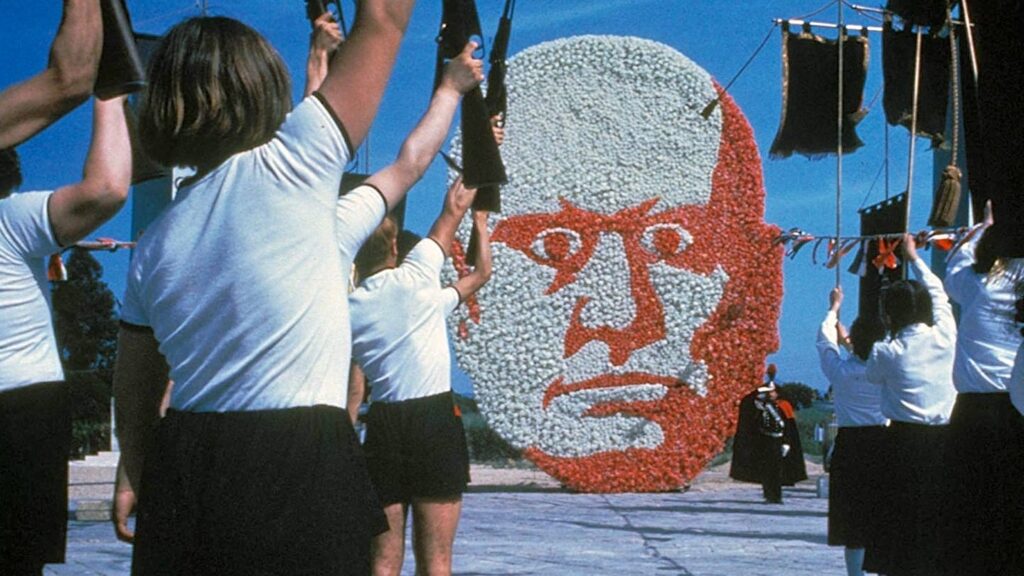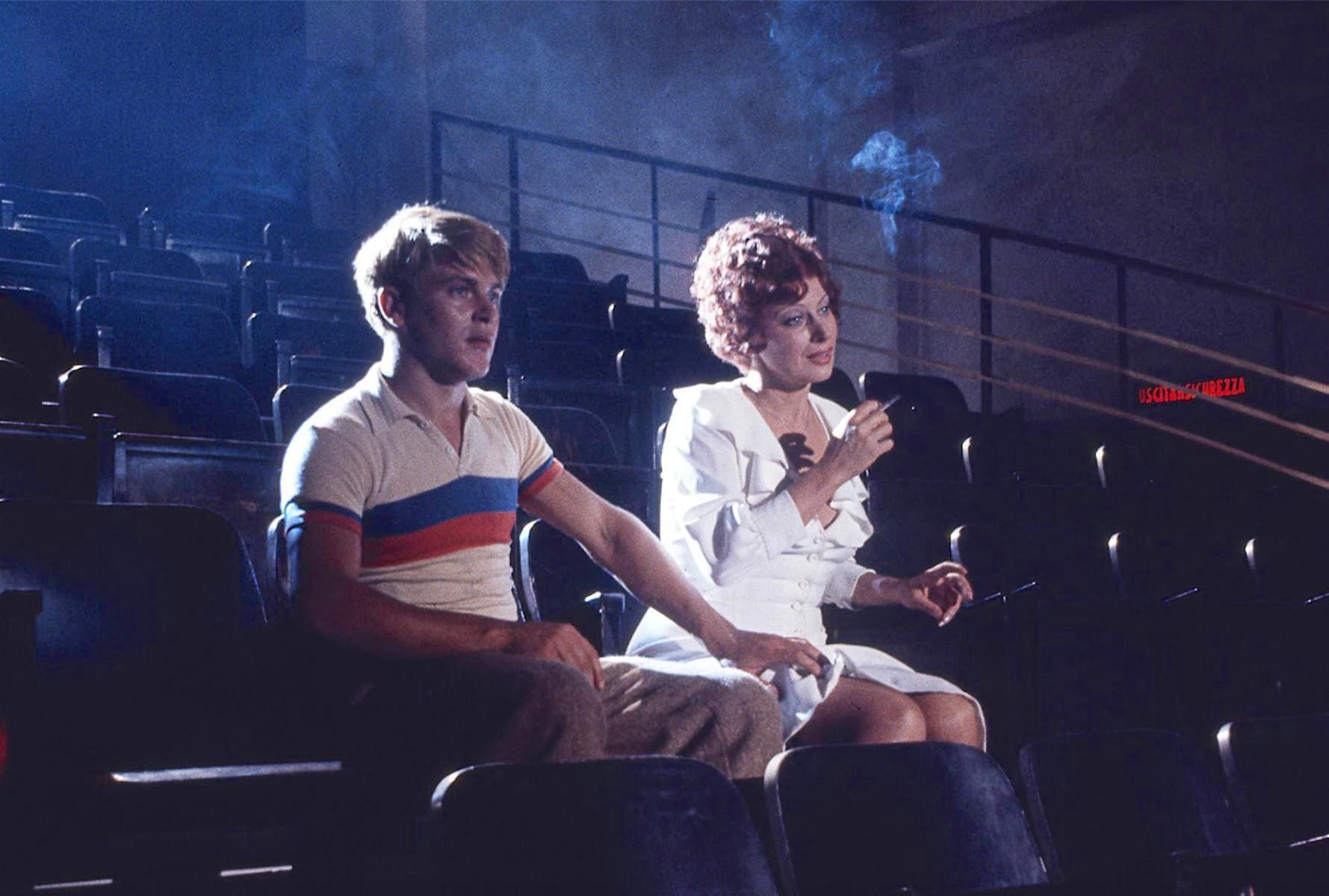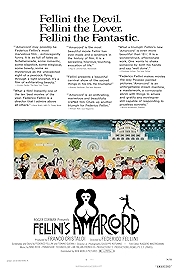Zig-zagging between fantasy, comedy and tender reminiscence, Federico Fellini’s Amarcord sets out to be autobiographical, from its title (Amarcord is “I Remember” in his native dialect), though Fellini always denied it was directly, explicitly the story of his life.
But it is the story of a year in the life of someone who was born on the coast near Rimini in the 1920s, as Fellini was, and came of age as Mussolini’s fascists were flexing their muscles.
Fellini kicks things off, and eventually brings them to a close, with the annual blizzard of a particular sort of pollen drifting through the town – it announces spring, the locals say – and then piles event on event as the year progresses, gradually and almost incidentally building a fleshed-out picture of the central family, the Biondi.
Occasionally people step out of the bustle of life to address the camera directly – like the local history bore (Luigi Rossi), or the hopelessly ugly and comically sex-obsessed Biscein (Gennaro Ombra).
The age-old and the novel jostle. The teenage boys are all obsessed with girls. They’re also hooked on the movies. The townsfolk build their traditional bonfire. They also all sail out in small boats one night to greet and bask in the glory of the SS Rex, Italy’s newest ocean liner. The family gathers for raucous meals during which everyone fights to be heard. Later they head to the local asylum to take mad uncle Teo (Ciccio Ingrassia) out for the day.
There is the madonna and the whore. The unattainable Gradisca (Magali Noël), a local hairdresser all the men fantasise about but who’s hanging on for the best offer. And local prostitute Volpina (Josiane Tanzilli), a leering simple-minded young woman with a face full of disease who’s been round the track a few times.

Every time the mood threatens to turn to the grand, the religious or the serious Fellini brings it crashing back to earth with a leer, a fart, or another bodily function. When Titta (the Fellini stand-in, played by Bruno Zanin) goes to confession, the priest seems only interested in how often he “touches himself”. When Aurelio Bondi (Armando Brancia), the head of the family, is taken in by the Fascists for not being sufficiently dedicated to the cause, they force him to drink castor oil. So he comes home from the encounter having had a terrible dose of the shits.
It’s notable, by the way, that Fellini paints the Fasiscts as buffoons. Maybe in another context he’d have portrayed them differently. But in Amarcord gentle mockery is the prevailing tone, even when things are deadly serious.
It’s a beautifully confected film, spun together with the lightest of touches, the music suggesting it might break into a musical number at any moment, which it never quite does. It’s shot by Giuseppe Rotunno with the most magical of glows. Rotunno also oversaw the 2015 restoration, which is a thing of beauty. Even the odd chunk of footage that has been replaced with second-generation material looks gorgeous.
You cannot say the same for the film’s soundtrack, which is all post-dubbed. The dead air of the re-recording studio hangs heavy on all the dialogue, with Bruno Zanin doing perhaps the best here. He’s pretty spectacular all round, in fact, holding his own against a cavalcade of long-in-the-tooth professional scene-stealers.
The restoration also allowed a new pair of eyes to have a go at the subtitling. If that’s how you’re watching it, it’s pretty lively. When Biscein climbs up to the boudoir of the visiting emir’s harem (you mean visiting emirs don’t bring their harem to your locale?!) and finds it full of sleeping beauties, he looks towards the camera and says something in Italian, rendered by the subtitles as, “Sweet Jesus, the pussy!”.
When people talk about Fellini they often talk about the carnivalesque, the grotesque and things erupting from out of the unconscious mind. There’s plenty of all that here. But there’s also the sweet, the bittersweet, the humorous and the affectionate. Whether it’s Fellini’s greatest film is open to debate – with La Dolce Vita, I Vitelloni and 81/2 in contention that’s a high bar to clear – but Amarcord is a great film, Fellini’s last great one.
Amarcord – Watch it/buy it at Amazon
I am an Amazon affiliate
© Steve Morrissey 2024

